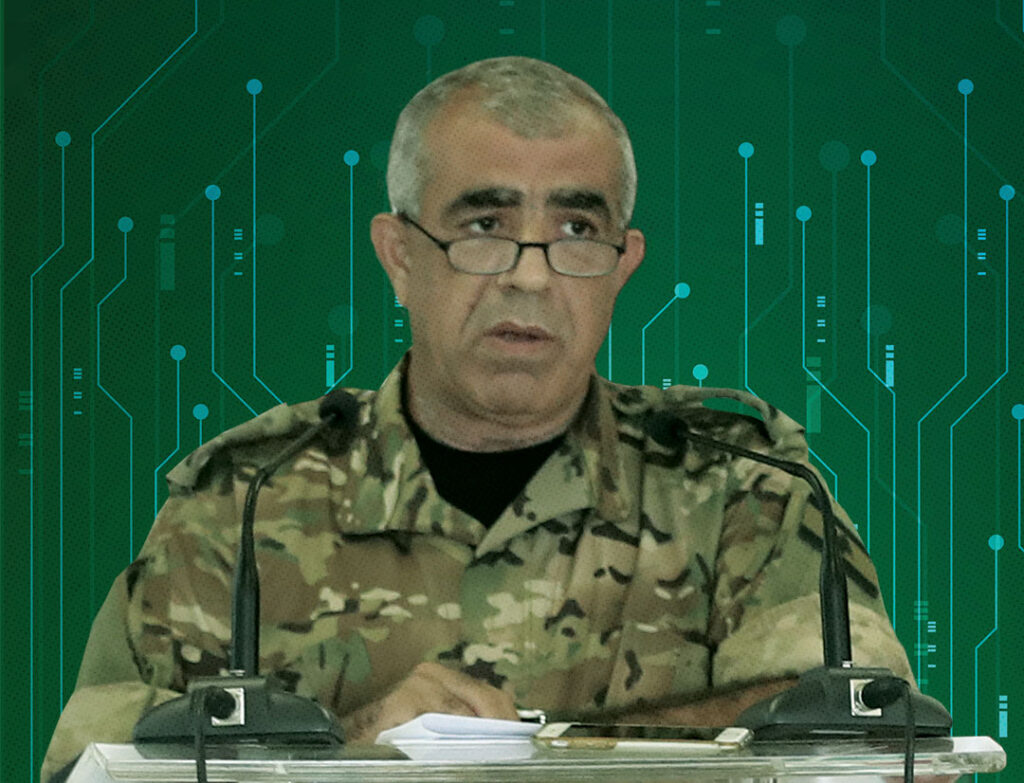Unipath interviewed Brig. Gen. Ali Qanso, chief spokesman of the Lebanese Armed Forces. He described how the Lebanese military combats threats to its computer networks that could affect national security.
Unipath: Cybersecurity has become an integral part of any state’s national security. What cyber threats does Lebanon face?
Brig. Gen. Qanso: Lebanon is exposed to cyber threats from numerous actors, all of whom seek to breach our online systems, spy on communications and steal information. There are terrorist organizations that breach accounts to propagate extremist ideology among young people, with the aim of recruiting them, as well as the risk represented by people or groups active within Lebanon and worldwide who target governments and their institutions electronically.
In this context, Lebanon is exposed to cyberattacks 24 hours a day, including distributed denial of service and attacks on the banking sector (using malware such as Gauss and Flame), the telecommunications sector and various civilian companies.
Lebanon’s capacity to counter such attacks is weakened by its lack of cyber protection systems and trained human resources capable of deterring such attacks. Consequently, cybersecurity operations and responses are limited to a reactive response and ensuring protection against these attacks as much as possible.
Unipath: What is the role of the Lebanese Armed Forces Cybersecurity Department?
Brig. Gen. Qanso: Most armed forces aim to establish cybersecurity departments to protect their resources within the various systems and networks they operate. These resources include sensitive security and military information related to weaponry, equipment, mission execution, deployment of units and personal and professional details pertaining to military and civilian personnel. These resources also include intranet, internet, and wireless communications.
As for the Lebanese Armed Forces, the Cybersecurity Department plays a very important role in deterring attempts at disruption or breaches that target military and security information systems. This is considered a significant security threat that puts the work of the Lebanese Army, its units and the lives of its personnel at great risk.
Unipath: How much impact do these kinds of attacks have on the Lebanese Army?
Brig. Gen. Qanso: The Lebanese Armed Forces use several cyber network systems, including official government websites, email services and smartphone applications, among others. It also ensures internet access for the various troops and units.
All these systems constitute areas that may be exploited by the nation’s enemies or any other actor that seeks to cause damage to the Army. For example, the success of an attack may lead to the disruption of the internal communications network that links units to the command. Army websites or one of the official social media accounts may be breached, or sensitive information may be stolen from the internal network where files are exchanged.
Such matters would have serious repercussions for the Army, its units and personnel, particularly if they were in the hands of terrorist groups constantly targeting military personnel and locations.
Unipath: How important is international cooperation in protecting Lebanese computer networks?
Brig. Gen. Qanso: International cooperation is crucial in protecting Lebanese information networks. This is conducted on two levels: The first is to provide the advanced software necessary to fortify our networks from cyberattacks, and the second is to train the human element to deal with these attacks and react appropriately as quickly as possible to prevent them or limit their damage.
Unipath: How can your personnel develop skills in line with the evolution of cybersecurity?
Brig. Gen. Qanso: Our personnel take part in various training courses, lectures and conferences in Lebanon and abroad. The world of cyber is evolving at a rapid pace, and cyberattack malware is produced daily in the thousands. In addition, thousands of groups and individuals who are perfecting cyberattacks worldwide are constantly devising new methods. Our enemies also continue to improve their online capabilities with the aim of breaching our information systems.
For all of this, our personnel must keep pace with the latest developments in the field of cybersecurity so they are ready to face new challenges. On the other hand, perfecting our cyber defense also requires sophisticated equipment and software that we work to secure in cooperation with friendly states and actors.

